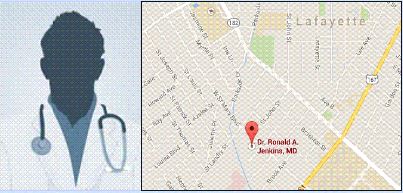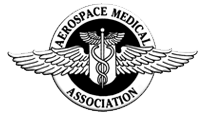
Ronald A. Jenkins, MD
501 West Saint Mary Blvd, Suite 100
Lafayette, LA, 70506
P: 337-983-0700
F: 337-983-0811
flyndoc @gmail.com
The following information outlines essential information and resources to help you obtain and retain FAA medical certification.
Very few people can’t obtain FAA medical certification. The initial determination is made by a designated FAA Aviation Medical Examiner (AME), however, the Aerospace Medical Certification Division of the FAA in Oklahoma City makes the final decision. Any decision made may be appealed. The most successful appeals are made by providing medical documentation which demonstrates flight fitness. Rarely will an FAA decision be reversed without some medical evidence.
In addition to the poor odds, legal appeals are costly and quite lengthy. Most pilots who are refused medical certification are actually eligible for certification but have simply failed to provide adequate documentation. Make no mistake, there are bureaucratic challenges, however, the standards are quite liberal and those who persevere are likely to be victorious.
There is an old saying that goes, “if you can see lightning and hear thunder, you can pass an FAA medical.” That may be true if you are young, healthy, and take no medications but someone else once said, “Too fast we get old and too slow we get smart.” Many pilots discover too late that medical conditions usually arrive unannounced and with many pilots these conditions are discovered by an AME.
CHOOSING AN AME -Your FAA medical examination must be done by an FAA designated Aviation Medical Examiner (AME), not your friendly family doctor–although many of us are friendly family doctors. The FAA has designated approximately five thousand AME’s. Eighty-percent of the AME’s do twenty-percent of the FAA exams with 50% of AME’s performing less than 25 FAA exams per year. I have been a senior FAA medical examiner for more than 25 years. I perform about a thousand FAA medicals per year, yet every day I learn something new. If you like the odds in Vegas, your going to love your chances with the nearest AME. If you like a sure thing, you may want to find out whom pilots and flight instructors in your area recommend.
SAFETY-We all know safety is job #1 but what is less understood is just how easily safety is compromised.
The IMSAFE checklist deserves review before each flight:
| Illness | Do I have an illness or any symptoms of an illness? |
| Medication | Have I been taking prescription or over-the-counter drugs? |
| Stress | Am I under psychological pressure from the job? Am I worried about financial, health or family matters? |
| Alcohol | Have I been drinking within eight hours? Within 24 hours? |
| Fatigue | Am I tired and not adequately rested? |
| Eating | Am I adequately nourished? |
THE APPLICATION – When you arrive for your FAA medical examination, you will be asked to fill out an FAA form 8500_8. It is interesting to note that all of medicine is reduced to 23 “yes” or “no” questions covering less than 1/3 of this one page application. The FAA is asking you to indicate every medical issue, including alcohol and recreational drug use, which has occurred in your life. Any administrative actions or convictions related to alcohol must also be reported to the security Division of the FAA within 60 days (See Resources, Item 5). It is DEFINITELY in your best interest to tell the truth. The FAA checks your driving record each time you apply for a medical and publishes a toll-free hotline number so that anyone can anonymously report you. Falsifying this form may invalidate your insurance policy. Also, it can cost you up to $250,000, five years in prison and the loss of all airman certificates. The AME faces similar penalties. Remember that the standards are liberal. Don’t risk it! The first time you are to answer “yes” to any of the 23 questions you should have a copy of all medical records related to the issue in-hand. These records should be legible, typewritten and should detail the issue and the chronology. Your airman identification number (Social Security or FAA assigned number) and date of birth should be on each page. If the FAA has previously assigned you a Pathological Index (PI) for this or another condition, this number should also be on each page. Make three copies of all records and at least one of all FAA correspondence, one for the FAA, one for the AME and one for your file. If your application is deferred to the FAA in Oklahoma, you may want to keep the following number handy. The phone number for the FAA Medical Certification Division is (405) 954-4821. Noting the time, date and person that you spoke with is also a good idea.
MEDICATIONS – You will be asked to list all prescription and over-the-counter medications that you currently use. The condition which the medication is treating is the main issue with the FAA. The list of medications that will keep you on the ground includes, but is not limited to: anti-depressants, stimulants, and any other drugs (or combination of drugs) that produce adverse side effects or treats a grounding medical condition. Medications or medical conditions that present no problem on the runway may have significant adverse effects at 10,000 feet. A good example is Benadryl, an over-the-counter cold medication, which is the most common drug found in the bodies of dead pilots. This drug (diphenhydramine) is in several other cold, cough and sleep preparations. The FAA does not publish an official list of approved drugs. Pilots should read all prescription labels carefully, ask your physician or pharmacist about adverse effects and consult your AME to find out if a drug or the condition itself is acceptable to the FAA.
HEART – Cardiovascular conditions are the most common issue which disqualifies pilots. Blood pressure is a simple heart issue which sidelines many pilots. The FAA’s absolute max BP is 155 / 95 (systolic & diastolic must be below these numbers), yet many physicians will prescribe medication for numbers greater than 130/85. Pilots with the diagnosis of hypertension or those simply using medications to control blood pressure must provide blood/lab work, a resting EKG and a typewritten letter from the treating physician to gain approval. Irregular heart beats (arrhythmia), murmurs, and many other cardiovascular conditions also can stop the show unnecessarily. Remember that it is very important to have all essential medical records at the time of an FAA medical exam. The FAA will assume your condition is the worst possible case until they have documentation to show otherwise. If your condition is extraordinary or you don’t provide adequate documentation, the AME may defer the decision to the Regional Flight Surgeon or Oklahoma City which can delay issuance by several months.
VISION – First and Second class certification requires distance vision be corrected to 20/20 and near vision corrected to 20/40. Third class certification requires that your near and distant vision be corrected to 20/40. Near or distant vision is not usually a permanent disqualifying issue since lenses or surgery corrects most pilots to the FAA standards and waivers may be obtained even if one has only one good eye. It is important to note that surgery will not give you better vision than contact lenses or glasses and while these procedures are commonly performed with success, there is a chance that you may permanently degrade your vision beyond FAA standards. In some cases distant vision is obtained but near vision is lost. Be certain you are a good candidate for this procedure.
If you have recently lost the use of an eye or had eye surgery, the FAA requires that your eyes and brain to stabilize prior to re-certification. If you have had surgery or know your vision does not meet the FAA’s standards, you should have your eye doctor fill out an FAA Eye Evaluation Form 8500-7 prior to your FAA examination. Those with Glaucoma must have FAA form 8500-14 filled out. These forms are available from your AME and may also be downloaded at: www.leftseat.com.
Even if you can’t meet the standards, a medical flight test may be arranged to demonstrate flight fitness.
Color vision testing can present an obstacle to many pilot applicants. Provided you can tell the difference between red, green and white, it is usually possible to obtain approval or a permanent waiver for FAA medical certification even with a mild color deficiency. One problem is that the colors on the sheets which most AME’s use can fade and in some cases are not illuminated properly. The FAA does have several other tests which can be substituted to demonstrate sufficient color vision.
DISQUALIFYING CONDITIONS AND WAIVERS – The Federal Aviation Regulations (FAR) specify several “disqualifying” conditions. These include: heart conditions, diabetes, psychiatric issues, substance dependence or abuse, significant neurological disorders. The list in the FAR’s is somewhat misleading since the FAA routinely allows Special Issuance waivers under FAR 67.401. This regulation permits discretionary issuance to those the FAA considers at low risk for incapacitation. Almost all of the above conditions are waiverable under the Special Issuance regulation provided detailed medical documentation demonstrates flight fitness.
The FAA currently considers some issues absolutely disqualifying. These include: major psychosis or personality disorder, double heart valve, complete heart replacement, implanted cardiac defibrillator and current seizures disorders. While your AME may be able to expedite certification by phoning the FAA, initial Special Issuance waivers are typically issued by the FAA’s regional flight surgeon or the Federal Air Surgeon via Oklahoma. If your medical records do not adequately detail your medical history, you will be dealing with the FAA in Oklahoma, not your local AME.
There is a company which assists pilots, AME’s and the FAA by properly preparing all the required medical records and by walking the information through the FAA. Pilot Medical Solutions is located in Oklahoma and can often accomplish in days what may take months for other sources, including your AME, to do. They have an excellent website at www.LEFTSEAT.com or you can call 405-787-0303. While there is a fee for this service, initially they will talk with you for free and can give you very good advice.

RESOURCES – If you have questions about FAA medical certification, or would like a free consultation, please feel free to contact me at: flyndoc @gmail.com
Please also note the following resources:
1. Pilot Medical Solutions, Inc. (800) 699-4457 leftseat.com
2 Reporting DUI/DWI, FAA SECURITY DIV., CASD, AMC-700, P.O. Box 25810, OKC, OK 73125 Fax 405-954-4989
3. FAA Aerospace Medical Certification Division, 6500 South MacArthur, OKC, OK 73169 (405) 954-4821
So, find a good AME, be honest, keep good records and persevere.
Ronald Armand Jenkins, MD, Sr. AME
CLICK HERE to download or Print FAA Medical Survival Guide



